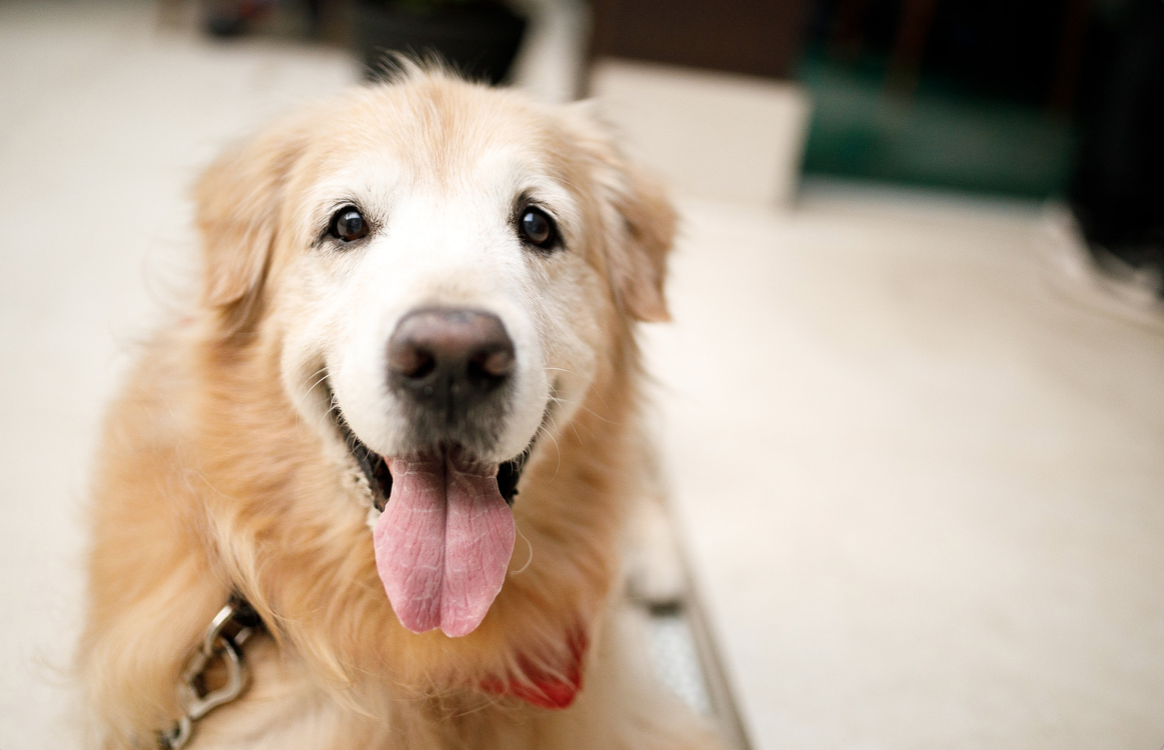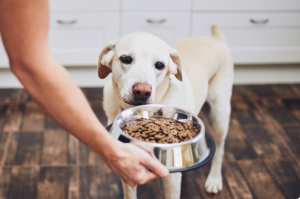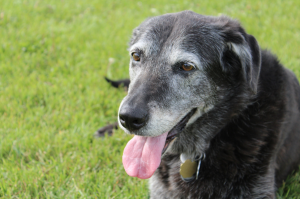
Understanding the Golden Years
As pet parents, we want nothing but the best for our furry friends, and we wish for them to stay healthy and lively for as long as possible. But aging is inevitable, and as our canine companions enter their golden years, they will experience various physiological changes. These changes can include decreased activity levels, potential weight gain, and the onset of potential chronic health issues. It’s up to us as dog parents to adapt to these changes so we can ensure their health remains golden, and one vital way of doing that is adjusting their diet. Read on to learn about our nutrition tips for senior dogs!
Adjust Caloric Intake

With age, your senior dog’s metabolism will slow down, and they will become less active, leading to weight gain. This weight gain can exacerbate health issues, such as arthritis, diabetes, and heart disease. Therefore, managing their caloric intake is crucial. To adjust your senior dog’s caloric intake, you can look into lower calorie foods, foods that are designed for senior dogs (like this list of the best senior dog foods), or adjust your dog’s portion size. Seek guidance from your veterinarian to determine the correct amount of calories your senior dog should consume daily.
Prioritize High-Quality Protein
Protein remains a vital nutrient for dogs, even as they age. It’s critical for maintaining muscle mass and supporting the immune system. Ensure that your dog’s diet includes high-quality protein sources like chicken, turkey, fish, or lean beef. Some older dogs may require more protein than younger ones, particularly if they have certain health conditions, so consult your vet about the ideal protein intake.
Incorporate Fiber
A common issue among senior dogs is constipation. Increasing the fiber content in your dog’s diet can help alleviate this problem. Fiber adds bulk to the stool and aids in regular bowel movements. Vegetables, whole grains, and specially formulated senior dog foods can be good sources of fiber.
Don’t Forget the Fats
Healthy fats are an essential part of a dog’s diet, providing energy and helping in nutrient absorption. However, it’s important to note that not all fats are created equal. Look for foods with omega-3 and omega-6 fatty acids, such as fish, pumpkin, flaxseed oils. These help maintain healthy skin, shiny coats, and support brain health.
Hydration is Key
Ensure your senior dog has constant access to fresh, clean water. As dogs age, their ability to conserve water may decrease, making them more prone to dehydration. Wet food can also be a great way to increase water intake, especially for dogs that don’t drink enough on their own.
Supplements
Supplements can be a beneficial addition to your senior dog’s diet. In fact, according to this article by VCA Hospitals, supplements may even make it possible to “slow the progression of degeneration,” or in other words, slow the aging process. Before making any changes, consult with your vet to find out which, if any, supplements would benefit your senior dog. And remember, while supplements can significantly enhance your senior dog’s diet, they should never act as substitutes for a balanced diet.
Regular Vet Check-ups
Regular vet check-ups are essential. Your vet can monitor your dog’s weight, dental health, and overall condition. They can also provide dietary recommendations based on your dog’s unique needs. Your vet can provide the most accurate advice, so consult with them before making any dietary changes for your senior dog.
Enjoy the Golden Years

Whether your senior dog has been your loyal companion for many years, or you just adopted them into your home, it’s up to you to guide them through their golden years. By adapting their diet to meet their senior dog nutrition needs, you can help ensure these years are truly golden, filled with good health, happiness, and a passion for life.
Thinking about adopting a senior dog? Check out our article on “The Benefits of Adopting a Senior Dog.”
